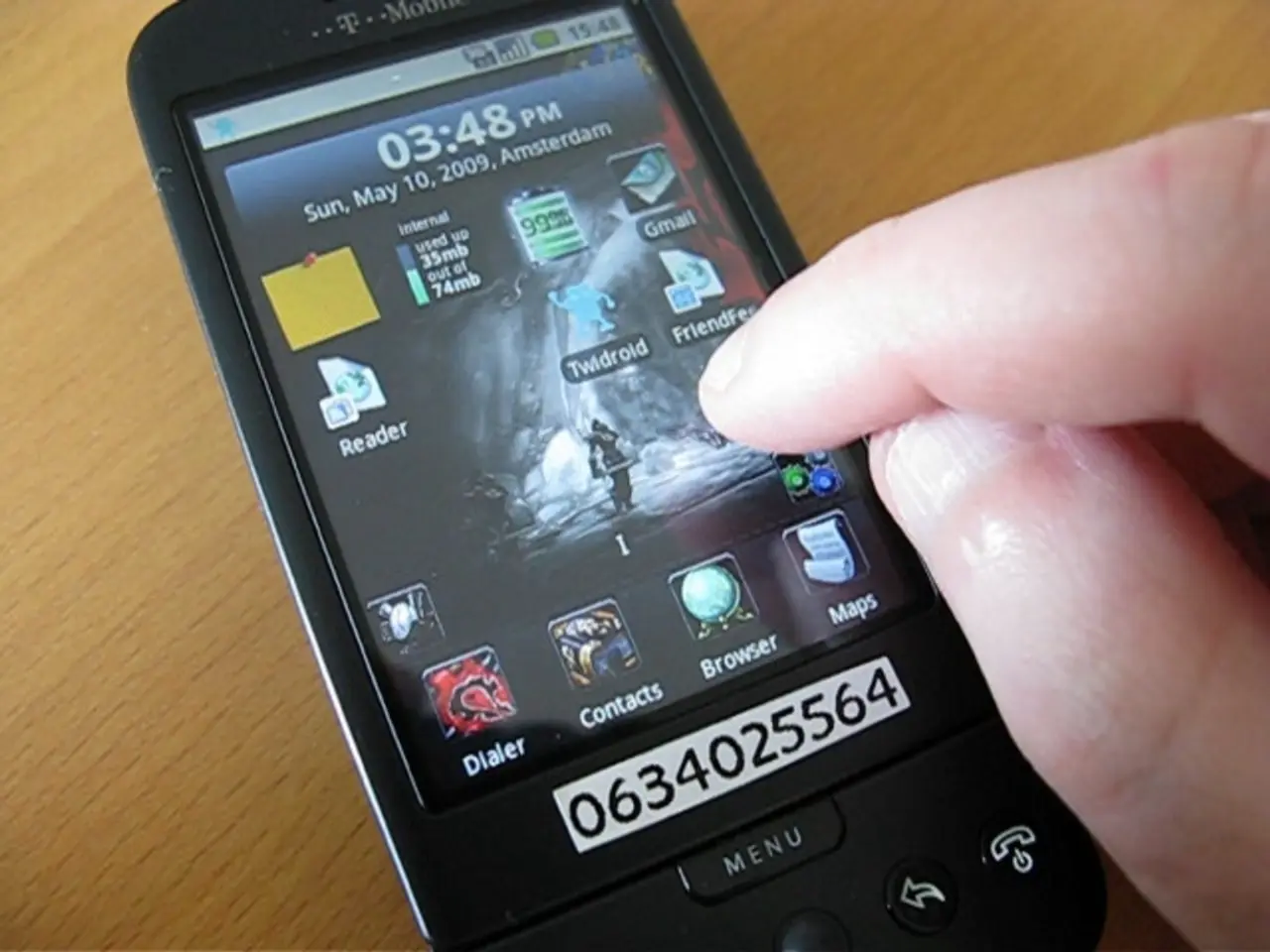Young adult defrauded on WhatsApp, resulting in a 600 euro loss
In the Gifhorn district, a 21-year-old resident fell victim to a WhatsApp phishing scam last Monday. The hackers gained access to the victim's WhatsApp account, potentially exploiting a vulnerability in the security system.
The hacking incident highlights the need for increased security measures on WhatsApp accounts. The fraudulent message, sent without the acquaintance's knowledge or consent, requested a real-time transfer of 600 euros. The victim complied, resulting in a loss of 600 euros.
Phishing scams on WhatsApp typically work by tricking users into sharing verification codes. Attackers impersonate trustworthy entities and call victims, asking them to provide a one-time code supposedly needed for verification or delivery. When users share this code, the attackers gain control of their WhatsApp accounts[1].
To protect themselves, users can follow these key practices:
- Never share WhatsApp verification codes or one-time passwords with anyone, even if the request appears to come from a trusted source[1].
- Verify calls or messages by contacting the supposed organization directly using official contact info, not through numbers or links provided in unsolicited messages[1].
- Use WhatsApp’s enhanced security features such as two-step verification, which adds a PIN to your account beyond just the SMS code[2][3].
- Pay attention to WhatsApp’s new safety alerts and “pause, question, and verify” prompts that provide warnings about suspicious messages or group invitations from unknown numbers[2][3].
- Avoid clicking links or downloading attachments from unknown or unexpected sources to reduce the risk of phishing and malware[5].
- Keep the WhatsApp app and your device’s operating system updated to benefit from the latest security enhancements and scam detection technologies WhatsApp continually deploys[2][3].
The police in Gifhorn are currently investigating this case of fraud as part of the hacking incident. They are urging users to be cautious and to secure their WhatsApp accounts to prevent similar incidents. The hackers activated full access on other devices using the "Multi-Device" function, indicating a potential vulnerability in the system[4].
This incident serves as a reminder to all WhatsApp users to prioritise account security and to be vigilant against phishing scams. By following the recommended practices and staying informed about the latest scams, users can help protect themselves and their financial information.
[1] https://www.whatsapp.com/help/a/en/article/204652410/ [2] https://www.whatsapp.com/help/a/en/article/204652411/ [3] https://www.whatsapp.com/help/a/en/article/204652412/ [4] https://www.whatsapp.com/help/a/en/article/204652413/ [5] https://www.whatsapp.com/help/a/en/article/204652414/
- The WhatsApp hacking incident in Gifhorn underscores the importance of cybersecurity, particularly in cases involving technology-based general-news and crime-and-justice issues.
- To prevent falling victim to phishing scams, WhatsApp users should prioritize security measures, such as refraining from sharing verification codes, verifying calls and messages, using enhanced security features, being cautious with links and attachments, and keeping their app and device updated.




